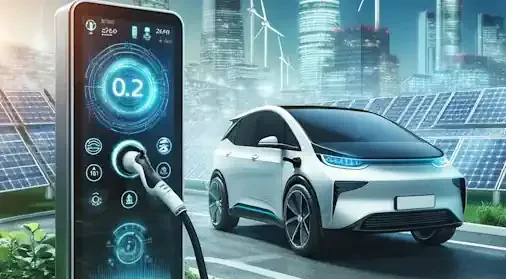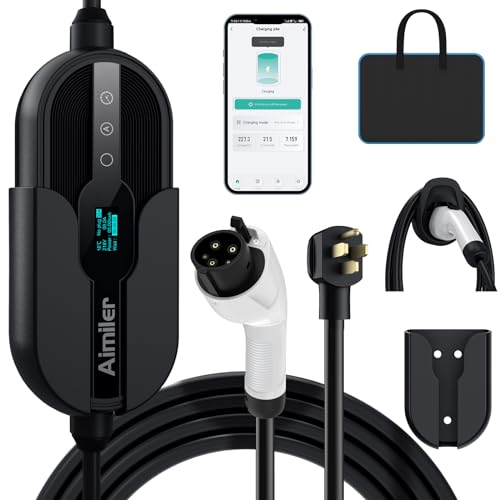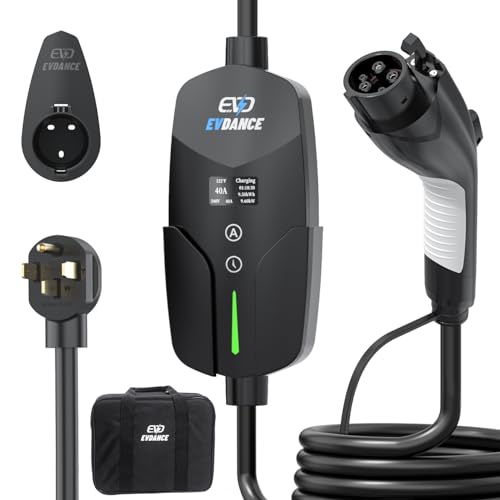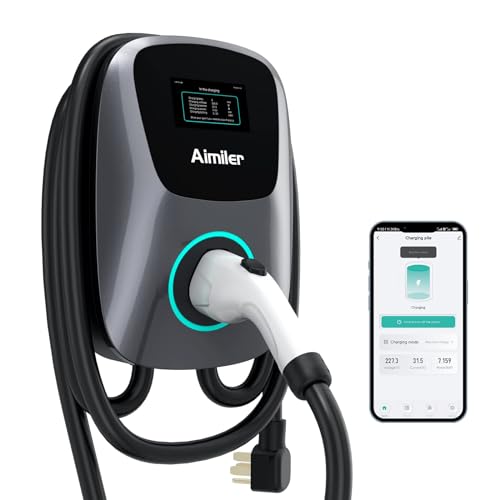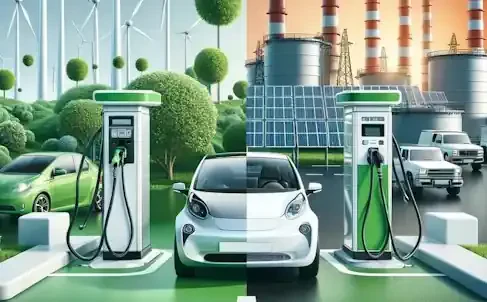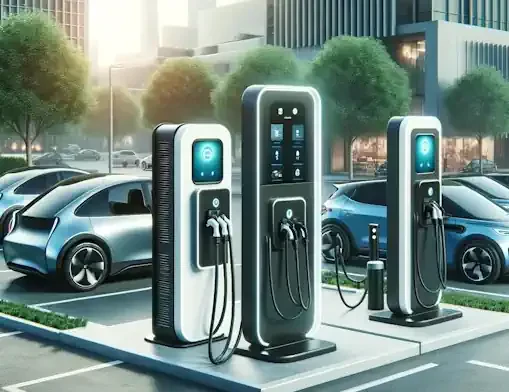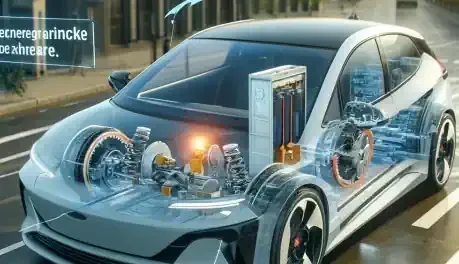The Rise of Smart EV Charging: A Technological Revolution
Smart electric vehicle (EV) chargers are emerging as a critical component in the ecosystem of electric mobility. Unlike conventional charging stations, smart EV chargers offer advanced features such as remote access, real-time charging data, and integration with renewable energy sources, making them a cornerstone for the future of environmentally friendly transportation. This article delves into the technology behind smart EV chargers, their benefits, challenges, and the role they play in accelerating the adoption of electric vehicles.
The landscape of electric vehicle (EV) charging is undergoing a profound transformation, driven by the emergence of smart charging technologies. This revolution goes beyond merely plugging in your EV; it's about optimizing energy consumption, reducing costs, and seamlessly integrating EVs into the power grid. Let's delve into the key aspects of this technological shift.
First, it's crucial to grasp the fundamental principles of smart EV chargers. Unlike their traditional counterparts, smart chargers boast advanced features like connectivity, intelligent scheduling, and dynamic load management. These capabilities allow for a more sophisticated and efficient charging experience.
The distinction between smart and traditional chargers is significant. Traditional chargers offer basic functionality – they deliver power to your EV's battery without much finesse. Smart chargers, on the other hand, can communicate with the grid, your EV, and even your home energy management system. This enables features like charging during off-peak hours when electricity rates are lower, optimizing charging speed based on grid conditions, and even enabling vehicle-to-grid (V2G) technology, where your EV can send power back to the grid.
The implications of smart charging extend far beyond individual convenience. They are instrumental in reshaping transportation as a whole. As the adoption of EVs accelerates, smart charging infrastructure is becoming increasingly vital. It helps alleviate concerns about grid overload, ensures efficient use of energy resources, and supports the growth of a sustainable transportation ecosystem.
Moreover, smart charging plays a pivotal role in accelerating the transition to electric mobility. By addressing range anxiety and offering cost-effective charging solutions, smart chargers are making EVs more appealing to a wider audience. This, in turn, drives demand for EVs, encouraging manufacturers to invest in further development and innovation.
In essence, smart EV charging is not just an incremental improvement; it's a technological revolution that is redefining how we power our vehicles and interact with the electrical grid. By embracing smart charging, we pave the way for a cleaner, more efficient, and sustainable future of transportation.
The Technology Behind Smart EV Chargers
At the core of smart EV chargers is the Internet of Things (IoT) technology, which allows these devices to communicate with the grid, the vehicle, and the user. This connectivity is facilitated through Wi-Fi, Bluetooth, or cellular networks, enabling the charger to receive and send data. Additionally, smart chargers often incorporate sophisticated software that can analyze patterns in electricity usage, predict peak demand, and respond to grid signals by adjusting charging rates or delaying charging sessions to balance the grid's load.
The successful implementation of smart EV charging hinges on a complex interplay of standards, protocols, and connectivity solutions. These elements ensure that chargers, vehicles, and the grid can communicate seamlessly, enabling a smooth and efficient charging experience. Let's delve into the key components that underpin the smart charging ecosystem.
Open Charge Point Protocol (OCPP): The Backbone of Interoperability: OCPP serves as the universal language for communication between EV charging stations and network management systems. It defines a standardized set of commands and messages, ensuring that chargers from different manufacturers can be managed and monitored using a common platform. This interoperability is crucial for building a scalable and interconnected charging infrastructure. Without OCPP, the smart charging landscape would be fragmented and incompatible, hindering the growth of EV adoption.
ISO 15118: Paving the Way for Seamless Communication: ISO 15118 is a suite of international standards that focuses on communication between EVs and charging stations. It enables features like Plug & Charge, which allows for automatic authentication and billing when an EV is plugged in. ISO 15118 also facilitates bidirectional charging (V2G), enabling EVs to send power back to the grid. This standard is instrumental in creating a user-friendly and efficient charging experience, reducing the need for manual intervention and streamlining the charging process.
Smart Charging Networks: Connecting Drivers, Chargers, and Utilities: Smart charging networks act as the central nervous system of the charging ecosystem. They connect EV drivers with available chargers, manage charging sessions, handle billing, and provide real-time data on charger availability and energy consumption. These networks often integrate with mobile apps, allowing drivers to easily locate and pay for charging. Utilities can also leverage smart charging networks to monitor grid conditions and dynamically adjust charging rates to optimize energy usage.
The Role of Mobile Apps and User Interfaces in Smart Charging: Mobile apps have become indispensable tools for EV drivers. They provide a convenient way to find charging stations, initiate and stop charging sessions, monitor charging progress, and pay for electricity. These apps often offer additional features like trip planning, energy usage tracking, and personalized recommendations. A user-friendly and intuitive interface is crucial for promoting the adoption of smart charging, as it simplifies the charging process and makes it more accessible to a wider audience.
Benefits of Smart EV Chargers
Smart EV charging isn't merely about convenience; it unlocks a multitude of benefits that extend beyond simply replenishing your vehicle's battery. Let's explore some of the most impactful advantages that smart charging brings to the table.
Energy Efficiency and Cost Savings: Smart chargers empower users to optimize their energy consumption. By intelligently scheduling charging sessions during off-peak hours when electricity rates are lower, EV owners can significantly reduce their charging costs. Additionally, features like dynamic load management ensure that charging doesn't strain the grid, leading to more efficient use of energy resources.
Dynamic Load Management: Optimizing Grid Integration: Smart chargers are instrumental in managing the load on the electrical grid. They can dynamically adjust charging rates based on grid conditions, preventing overloads and ensuring stability. This is particularly crucial as the number of EVs on the road increases. By integrating EVs seamlessly into the grid, smart charging contributes to a more resilient and reliable energy infrastructure.
Vehicle-to-Grid (V2G) Technology: A Game-Changer: V2G technology represents a paradigm shift in the relationship between EVs and the grid. With V2G, EVs can not only draw power from the grid but also send excess energy back. This opens up a world of possibilities, including using EVs as backup power sources during outages, supporting grid stability, and even generating revenue for EV owners by selling energy back to the grid.
Smart Charging and the Future of Renewable Energy: Smart charging is poised to play a pivotal role in the transition to renewable energy sources. By integrating with solar panels and other renewable energy systems, smart chargers can prioritize charging when renewable energy is abundant. This not only reduces reliance on fossil fuels but also maximizes the utilization of clean energy.
Smart EV charging isn't just about charging smarter; it's about creating a more sustainable and efficient energy ecosystem. By embracing the benefits of smart charging, we pave the way for a future where transportation and energy are seamlessly intertwined, supporting a greener and more resilient planet.
Overcoming Challenges
Despite their advantages, the widespread adoption of smart EV chargers faces several challenges. The initial cost of these chargers is higher than that of standard chargers, which can be a barrier for some consumers and businesses. There's also the matter of developing a standardized communication protocol for all smart chargers to ensure compatibility across different brands of vehicles and charging networks.
Additionally, the integration of smart chargers with the electrical grid requires significant upgrades to the grid's infrastructure to handle the increased load and to facilitate two-way communication. This includes investments in smart grid technology, which can be costly and time-consuming.
The Future of Smart EV Charging
A Glimpse into the Future: Smart EV Charging Trends and Innovations
The evolution of smart EV charging is far from over. In fact, it's accelerating at a rapid pace, with new trends and innovations constantly emerging. Let's peer into the future and explore some of the most promising developments on the horizon.
Wireless Charging: The Next Frontier in EV Charging: Imagine a world where you can park your EV over a charging pad and replenish its battery without the need for cables or plugs. Wireless charging, while still in its early stages, holds the potential to revolutionize EV charging. It promises a more convenient and seamless experience, eliminating the hassle of plugging and unplugging cables. Several companies are actively developing wireless charging solutions for EVs, and we can expect to see more widespread adoption in the coming years.
Bidirectional Charging: Powering Homes and Businesses: Bidirectional charging, also known as vehicle-to-grid (V2G) technology, is poised to transform EVs into more than just vehicles. With bidirectional charging, EVs can serve as mobile energy storage units, capable of powering homes and businesses during peak demand or outages. This not only enhances grid resilience but also opens up new revenue streams for EV owners who can sell excess energy back to the grid.
Smart Charging and the Internet of Things (IoT): The Internet of Things (IoT) is connecting everyday devices to the internet, and smart EV chargers are no exception. IoT-enabled chargers can gather and analyze data on energy usage, charging patterns, and grid conditions. This data can be used to optimize charging schedules, predict maintenance needs, and even identify potential faults before they cause problems. As the IoT continues to expand, we can expect even deeper integration between smart chargers and other connected devices, creating a more intelligent and efficient energy ecosystem.
The Rise of Ultra-Fast Charging: Revolutionizing EV Travel: Ultra-fast charging technology is poised to eliminate one of the major barriers to EV adoption: long charging times. These chargers can deliver hundreds of miles of range in a matter of minutes, making long-distance EV travel more feasible. While ultra-fast chargers are currently more expensive and less common than slower chargers, ongoing advancements in battery technology and charging infrastructure are rapidly bringing down costs and increasing availability.
The future of smart EV charging is incredibly promising. As technology continues to evolve, we can anticipate a seamless and interconnected charging experience that not only powers our vehicles but also supports a more sustainable and resilient energy grid. The innovations on the horizon have the potential to transform how we think about transportation, energy, and the role of EVs in our daily lives.
Smart EV Charging in Action: Real-World Applications and Case Studies
The theoretical benefits of smart EV charging are impressive, but how do they translate into real-world scenarios? Let's explore some of the most noteworthy applications and case studies that demonstrate the transformative power of smart charging.
Residential Properties: Smart charging solutions for homes are becoming increasingly popular. Homeowners can install smart chargers in their garages or driveways, allowing them to conveniently charge their EVs overnight. These chargers can be integrated with home energy management systems, optimizing charging based on energy usage patterns and electricity rates. For example, a smart charger might delay charging until after midnight when electricity demand is lower, resulting in significant cost savings for the homeowner.
Workplace Charging: Boosting Employee Satisfaction and Sustainability: Many businesses are recognizing the value of offering workplace charging for employees. Not only does this provide a valuable perk that boosts employee morale, but it also contributes to corporate sustainability goals. Smart chargers in workplace settings can be managed remotely, allowing for equitable access and efficient use of charging resources. Case studies have shown that workplace charging programs can significantly increase EV adoption among employees and reduce overall carbon emissions.
Public Charging Networks: Expanding Access and Convenience: The growth of public charging networks is essential for the widespread adoption of EVs. Smart chargers are being deployed in public spaces like parking garages, shopping centers, and rest stops, providing EV drivers with convenient access to charging infrastructure. These chargers often utilize mobile apps that allow users to locate available chargers, initiate charging sessions, and make payments seamlessly. The expansion of public charging networks, driven by smart charging technology, is making EV ownership more feasible for a broader range of individuals.
Smart Charging Innovations in Fleets and Commercial Vehicles: Smart charging is not limited to individual EV owners; it's also transforming how businesses manage their fleets and commercial vehicles. Fleet operators can use smart charging to optimize charging schedules, minimize energy costs, and track vehicle usage data. For instance, a delivery company might use smart charging to ensure that its electric vans are fully charged and ready for their routes each morning. This not only improves operational efficiency but also contributes to the company's sustainability goals.
The real-world applications of smart EV charging are diverse and far-reaching. Whether it's empowering homeowners to charge their EVs efficiently, incentivizing businesses to adopt sustainable practices, or expanding public charging infrastructure, smart charging is playing a pivotal role in accelerating the transition to electric mobility and creating a more sustainable transportation ecosystem.
